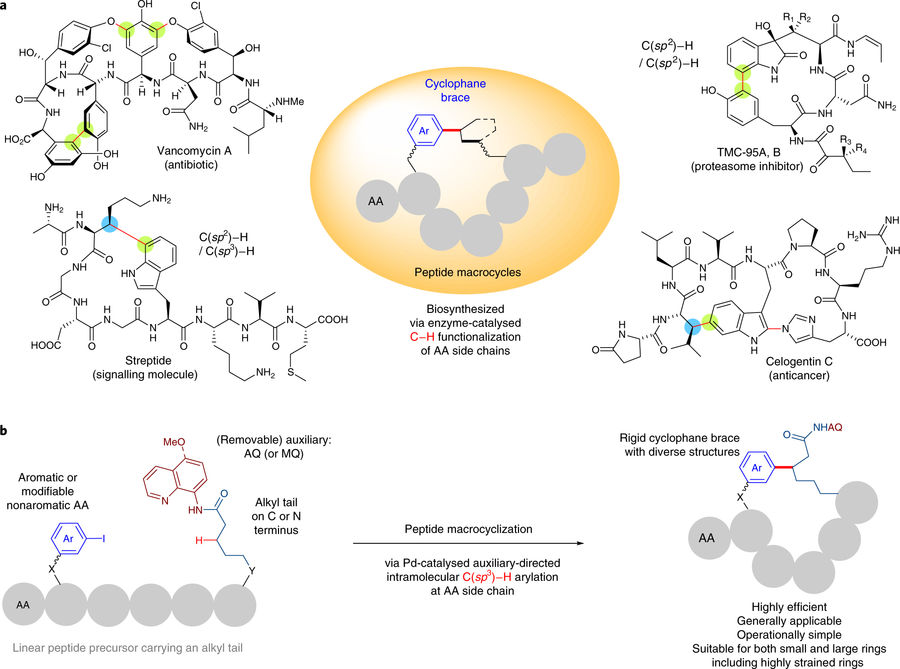
New methods capable of effecting cyclization, and forming novel three-dimensional structures while maintaining favourable physicochemical properties are needed to facilitate the development of cyclic peptide-based drugs that can engage challenging biological targets, such as protein–protein interactions. Here, Prof. Chen's group report a highly efficient and generally applicable strategy for constructing new types of peptide macrocycles using palladium-catalysed intramolecular C(sp3)–H arylation reactions. Easily accessible linear peptide precursors of simple and versatile design can be selectively cyclized at the side chains of either aromatic or modified non-aromatic amino acid units to form various cyclophane-braced peptide cycles. This strategy provides a powerful tool to address the long-standing challenge of size- and composition-dependence in peptide macrocyclization, and generates novel peptide macrocycles with uniquely buttressed backbones and distinct loop-type three-dimensional structures. Preliminary cell proliferation screening of the pilot library revealed a potent lead compound with selective cytotoxicity toward proliferative Myc-dependent cancer cell lines.
Read more: https://www.nature.com/articles/s41557-018-0006-y.